Porcelain crowning is a popular dental restoration method today, not only enhancing the aesthetics of the teeth but also effectively correcting imperfections such as chipped, cracked, discolored, or misaligned teeth. With advanced techniques, this method provides evenly beautiful teeth, improves chewing function, and optimally protects natural teeth.
Metal-Ceramic Crowns
Metal-ceramic crowns are a type of prosthetic tooth with an inner framework made from Chromium-Cobalt or Chromium-Nickel alloy, which enhances their chewing strength. The exterior is covered with a layer of porcelain similar in color to natural teeth, creating a natural feel during use. Due to their lower cost, metal-ceramic crowns are a suitable choice for many customers. The average lifespan of this type of crown ranges from 3 to 5 years, depending on care.
Advantages of Metal-Ceramic Crowns
These are the lowest-priced porcelain crowns among current types.
The crowns have high durability, ensuring chewing ability nearly identical to natural teeth.
The reasonable cost makes this restoration method accessible to many customers.
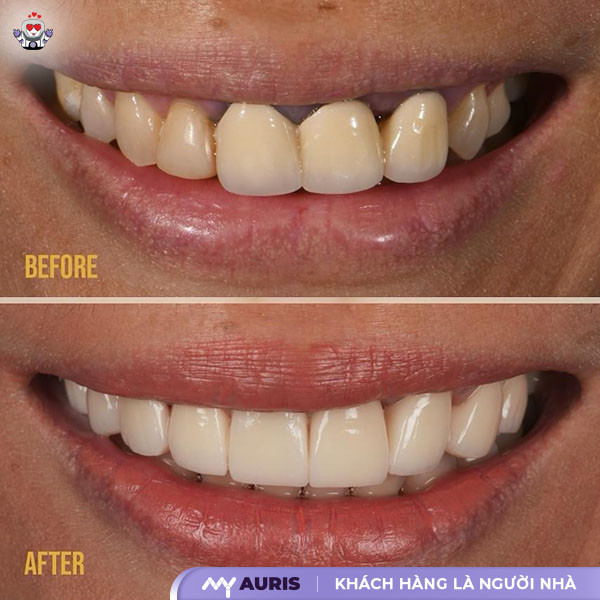
Disadvantages of Metal-Ceramic Crowns
The crowns have an opaque white color, not as translucent as all-ceramic crowns.
Due to the influence of acids in the oral cavity, the metal framework can oxidize over time, causing the gum line to darken and affecting aesthetics.
When strong light shines on them, the metal part inside the crown can become visible, making it easy to identify as a prosthetic tooth.
In some cases, soft tissue irritation in the mouth may occur, especially for individuals sensitive to metal.
Titanium Porcelain Crowns
Titanium porcelain crowns are a type of metal-ceramic crown with a special structure where the framework is made from a titanium alloy. Thanks to its high biocompatibility, titanium does not cause irritation or allergies, allowing titanium porcelain crowns to integrate well with the body, especially the jawbone. However, compared to all-ceramic crowns, this type has a slightly more opaque color and less natural shine. In terms of durability, titanium porcelain crowns have an average lifespan of 5 to over 10 years, depending on oral hygiene practices.
Outstanding Advantages of Titanium Porcelain Crowns
Initially, titanium porcelain crowns have a color quite similar to natural teeth, significantly improving the aesthetics of the smile.
Thanks to their titanium content, titanium porcelain crowns are lighter than conventional metal-ceramic crowns, providing a comfortable feeling during use.
Titanium material helps minimize gum irritation, ensuring safety for individuals with sensitive constitutions.
The crowns have good load-bearing capacity, effectively supporting chewing without fear of chipping or breaking.
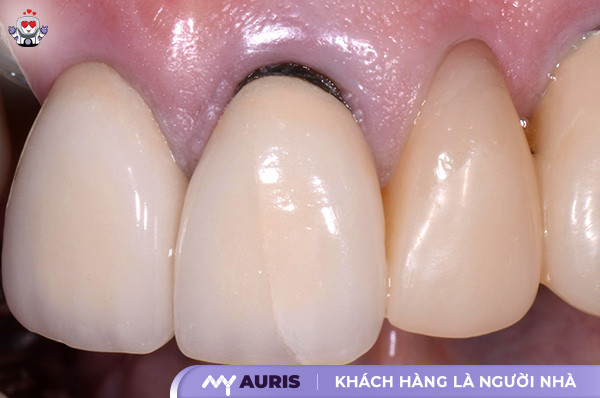
Disadvantages to Note
Over time, due to the oxidation reaction of the metal framework, the gum line area may darken, affecting aesthetics.
When undergoing X-rays or in strong lighting conditions, titanium porcelain crowns may show a dark shadow due to the metal alloy components in the framework.
Precious Metal Porcelain Crowns
Precious metal porcelain crowns are a premium dental restoration solution, combining a framework of rare precious metals such as gold, platinum, palladium, and an outer porcelain layer. Thanks to this combination, precious metal porcelain crowns ensure high durability, biocompatibility with teeth and gums, helping to maintain long-term stability.
Outstanding Advantages
Thanks to the precious metal material, the crowns retain their natural color over time.
The natural antibacterial properties of gold help reduce the risk of inflammation and protect the gums.
Precious metals are very safe, causing no irritation or side effects.
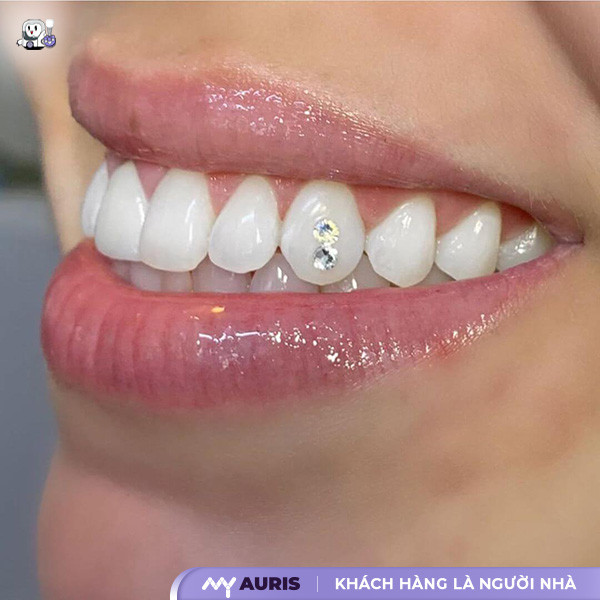
Disadvantages to Note
Due to the rare materials, the cost of precious metal porcelain crowns is often equivalent to or higher than all-ceramic crowns.
The color of precious metal porcelain crowns is still not as natural as all-ceramic crowns, especially under bright lights.
Despite high durability, precious metal porcelain crowns do not yet achieve the chewing efficiency as good as some other types of porcelain crowns.
All-Ceramic Crowns
All-ceramic crowns are a premium line of dental crowns, made entirely from pure ceramic, containing no metal, ensuring high aesthetics and biocompatibility. Among them, Cercon CAD/CAM ceramic crowns represent one of the most advanced technologies available today, marking a breakthrough in dental crown design. The manufacturing process for all-ceramic crowns is performed by computer with precise calculations and strict inspections to ensure optimal quality.
Advantages of All-Ceramic Crowns
All-ceramic crowns have a bright white color, natural transparency, and shine, making the teeth look harmonious and indistinguishable from natural teeth.
Since they contain no metal, they do not cause black gum lines or gaps between the teeth and gums, ensuring long-lasting aesthetics.
All-ceramic crowns can last for decades if properly cared for.
All-ceramic crowns do not irritate soft tissues, do not cause bad breath, and ensure oral health safety.
Thanks to advanced crown manufacturing technology, all-ceramic crowns have high hardness, allowing for good chewing and minimizing chipping.
All-ceramic crowns retain their color when X-rayed, unlike metal-ceramic crowns which may appear dark.
The dental crown restoration process is fast thanks to the application of modern technology.

Disadvantages of All-Ceramic Crowns
All-ceramic crowns have a higher cost compared to other types of dental crowns, due to the modern manufacturing technology and premium materials required.
The design and manufacturing process for all-ceramic crowns requires advanced machinery and high-level technical skills.
All-ceramic crown restoration requires a highly skilled and meticulous dentist to ensure the best possible results.
Porcelain Veneers
Porcelain Veneers (also known as ceramic laminates) are an advanced aesthetic restoration method that helps improve the appearance of teeth while preserving natural tooth structure to the maximum extent. This technology is very popular in the US and Europe due to its ability to create a bright, natural smile without excessive intervention on the original tooth structure. However, in Vietnam, this method is not yet widely popular due to the high technical requirements and skill level of the dental practitioner.
Advantages of Porcelain Veneers
Minimal tooth preparation is required; the dentist only removes a very thin layer from the tooth surface before bonding the veneer.
Provides naturally white, even, and beautiful teeth, avoiding the artificial look of some other methods.
Helps preserve the natural tooth structure to the maximum, preventing unnecessary damage to the enamel.
High-quality porcelain material does not irritate the gums, and the chewing sensation is almost identical to natural teeth.
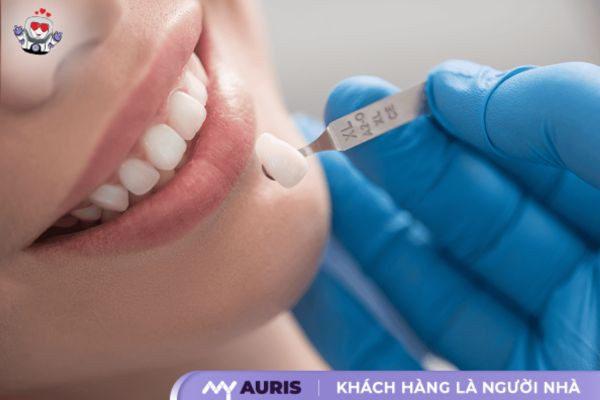
Disadvantages of Porcelain Veneers
If the adhesive deteriorates over time or if the user bites down on something too hard, the veneer may detach.
The cost of applying porcelain veneers is often higher compared to other methods due to the demanding technical requirements and premium materials.
To ensure strong adhesion and perfect aesthetic results, the procedure requires an experienced and skilled dentist.
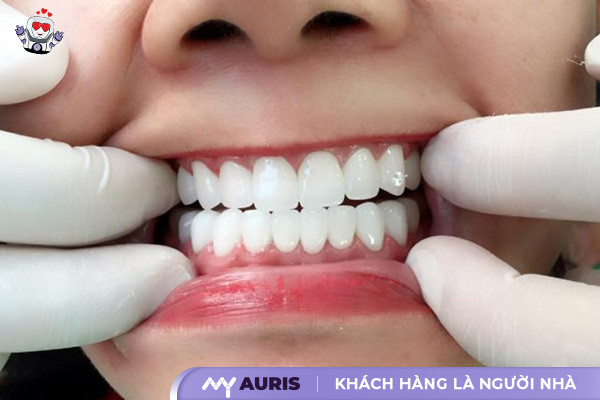
Nacera All-Ceramic Crowns
Nacera all-ceramic crowns are manufactured with a Zirconia Dioxide framework, coated with Nacera Classic Liquid porcelain, offering superior durability and natural aesthetics. This is a premium line of dental crowns with many outstanding advantages:
Natural color, with up to 16 shades to choose from, helping to harmonize with skin tone and natural teeth.
Load-bearing capacity of up to 1400 MPA, 4 times higher than natural teeth, allowing comfortable chewing without fear of chipping.
Durable for up to 20 years or more, ensuring long-term effectiveness and cost savings over time.
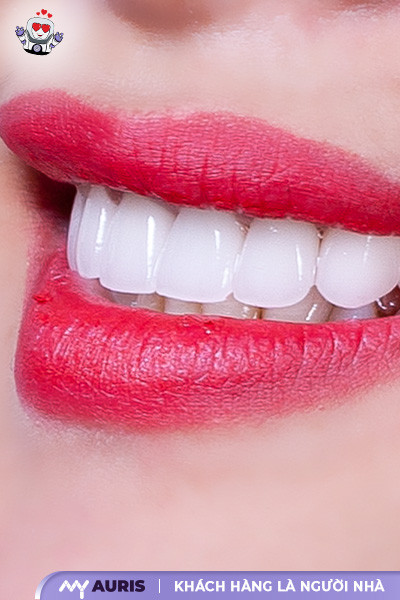
Zirconia All-Ceramic Crowns
Zirconia all-ceramic crowns are a premium line of dental crowns made entirely from Zirconia, an oxide of the metal Zirconium. With superior advantages, this is an ideal choice in cosmetic dentistry and dental crown restoration.
Identical to natural teeth, they do not appear dark under light and do not cause gum lines to blacken over time.
7 times harder than natural teeth, with high load-bearing capacity, effectively resisting wear and fracture.
Safe for oral health, minimizing irritation, suitable for all body types.
Lifespan of up to 15 years or more, providing lasting value.

Cercon All-Ceramic Crowns
Cercon porcelain crowns are a premium line of all-ceramic crowns with a Zirconia framework, coated with an outer Cercon porcelain layer, providing superior durability and aesthetics.
Available in up to 16 shades with translucency comparable to natural dentin, ensuring harmonious teeth without an artificial appearance.
Up to 1000 MPa, allowing comfortable chewing without fear of cracking or breaking.
Excellent adaptation to teeth and gums, minimizing irritation.
Durable for 15 – 20 years, and potentially longer with proper care.
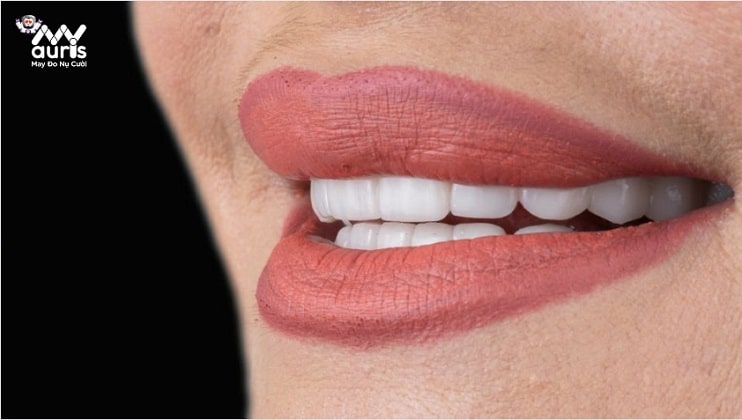
DDbio All-Ceramic Crowns
DDbio porcelain crowns are a type of premium all-ceramic crown, crafted from pure porcelain, ensuring superior durability and aesthetic appeal.
Natural color, resembling real teeth, enhances aesthetic appeal when smiling.
High hardness and strong ceramic framework provide good load-bearing capacity, maintaining superior durability.
Safe for gums, does not cause irritation to gum tissue, suitable for individuals with sensitive constitutions.
After long-term use, DDbio porcelain crowns retain their beauty, without changing color or eroding.
The lifespan of these crowns is up to 15-20 years.
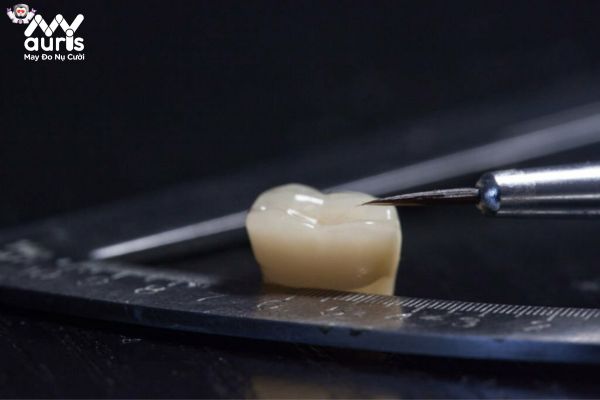
Zolid All-Ceramic Crowns
Zolid all-ceramic crowns are a premium line of dental crowns with a durable Zirconia framework, coated with Zolid porcelain, providing a natural luster without opacification.
Load-bearing capacity of up to 1566 MPa, 5 times higher than natural teeth, ensuring good chewing ability and minimizing the risk of cracking or breaking.
Maintains shape and color long-term, without changes over time.
With proper care, Zolid all-ceramic crowns can last up to 20 years, providing long-term value to users.
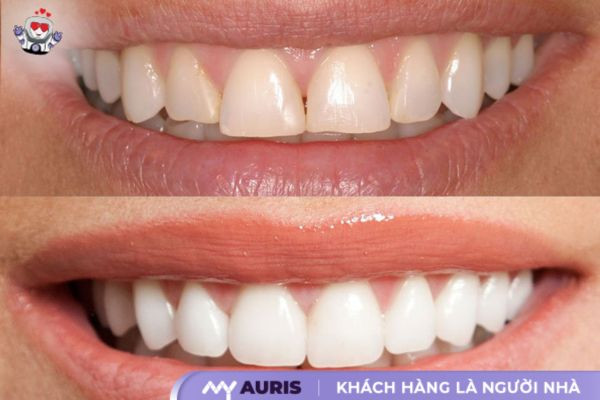
Ceramill All-Ceramic Crowns
Ceramill all-ceramic crowns are a high-end line of all-ceramic crowns, manufactured using modern CAD/CAM technology, ensuring absolute precision. These crowns use 100% Ceramill Zolid material, consisting of two layers: an inner Zirconia framework providing superior durability, and an outer Ceramill Kiss porcelain coating enhancing natural aesthetics.
Clear white color, natural translucency, resembling real teeth.
Superior durability: the Zirconia framework provides high load-bearing capacity, ensuring good chewing ability and preventing fractures.
Perfect biocompatibility: does not irritate the oral cavity, does not cause gum inflammation or black gum lines.
Lifespan of up to 17 years.
Thanks to advances in medicine, dental crowns are increasingly diverse with many different types, meeting both aesthetic appeal and durability. Each type of dental crown has its own characteristics and cost, suitable for different needs and financial conditions. Therefore, customers should consider choosing the most optimal type of dental crown based on their oral health condition and affordability.





